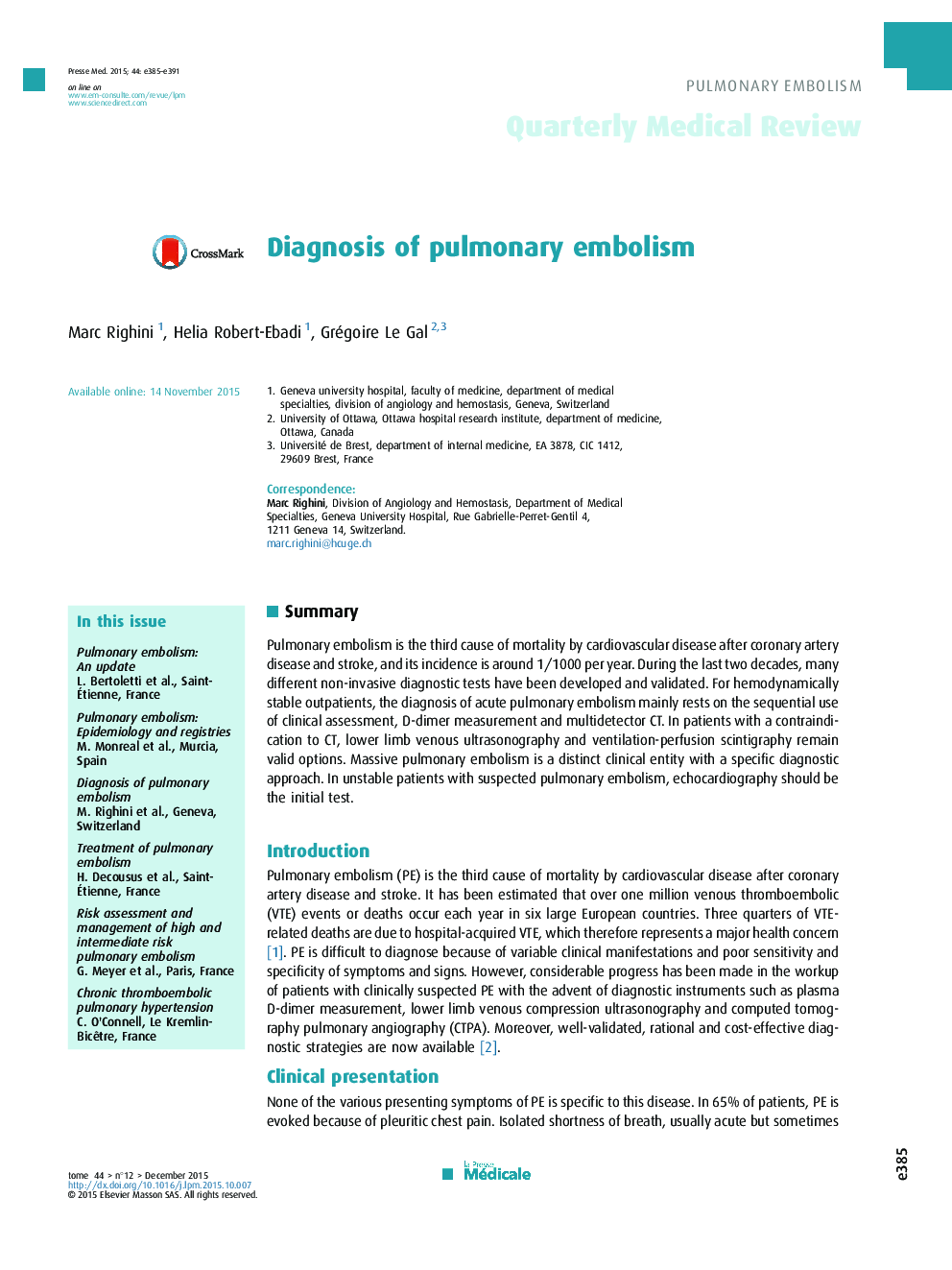| کد مقاله | کد نشریه | سال انتشار | مقاله انگلیسی | نسخه تمام متن |
|---|---|---|---|---|
| 3819264 | 1246417 | 2015 | 7 صفحه PDF | دانلود رایگان |
SummaryPulmonary embolism is the third cause of mortality by cardiovascular disease after coronary artery disease and stroke, and its incidence is around 1/1000 per year. During the last two decades, many different non-invasive diagnostic tests have been developed and validated. For hemodynamically stable outpatients, the diagnosis of acute pulmonary embolism mainly rests on the sequential use of clinical assessment, D-dimer measurement and multidetector CT. In patients with a contraindication to CT, lower limb venous ultrasonography and ventilation-perfusion scintigraphy remain valid options. Massive pulmonary embolism is a distinct clinical entity with a specific diagnostic approach. In unstable patients with suspected pulmonary embolism, echocardiography should be the initial test.
Journal: La Presse Médicale - Volume 44, Issue 12, Part 2, December 2015, Pages e385–e391
